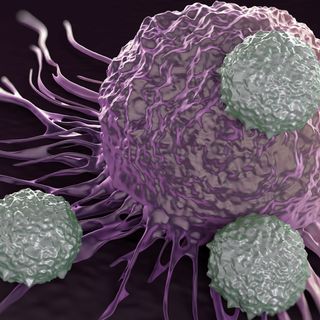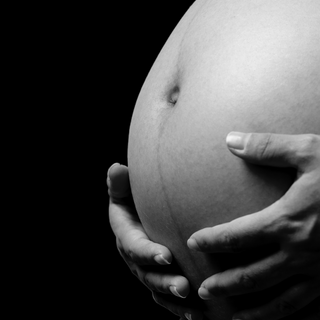Before and during periods, most women identify a change in their appetite. For women, eating patterns vary throughout the month — a direct result of the fluctuation of hormones such as estrogen and progesterone.
According to research published in the International Journal of Eating Disorders, a spike in sex hormones not only affects eating patterns, but it also affects body image right before and during menstruation. During the pre-menstrual, or luteal phase, the body secretes more progesterone. In this phase, researchers found women tended to binge eat, and also suffered bloating, which increased body dissatisfaction. Progesterone also contributes to increased anxiety levels just before menstruation begins, which added to body image issues as women scrutinized themselves more.
Related on The Swaddle:
Your Menstrual Cycle Keeps Changing Throughout Your Lifetime
On the other hand, binge-eating and body dissatisfaction during the middle of the month — in the follicular phase right before ovulation — decreases, and dietary restraint, or the practice of limiting food intake, increases. This may be due to an increase in estrogen at this time, which researchers found is an appetite suppressant. Dietary restraint, however, does not vary much throughout the month, which led researchers to conclude the behavior was not overtly affected by ovarian hormones.
A drive for thinness, body dissatisfaction, and limitations on food intake — symptoms observed throughout the menstrual cycle — are also present in eating disorders such as anorexia nervosa and bulimia nervosa. Understanding the role of ovarian hormones on women’s eating habits and resulting body image issues throughout the menstrual cycle can provide clues to understanding the hormones’ contribution to the development of eating disorders. The spike in sex hormones and resultant binge-eating right before menstruation can also exacerbate mental health issues in women with existing mood disorders, such as anxiety and depression. Identification of mental and physical changes that lead to disordered eating can help make sense of an otherwise chaotic pre-menstrual phase, and understand eating disorders better, researchers said.
While appetite during periods has been studied extensively, the link to body image and dietary restraint needs more study, researchers said. It’s an important first step in understanding the myriad ways in which ovarian hormones affect not only women’s appetites, but the way they view themselves as a result of it.




